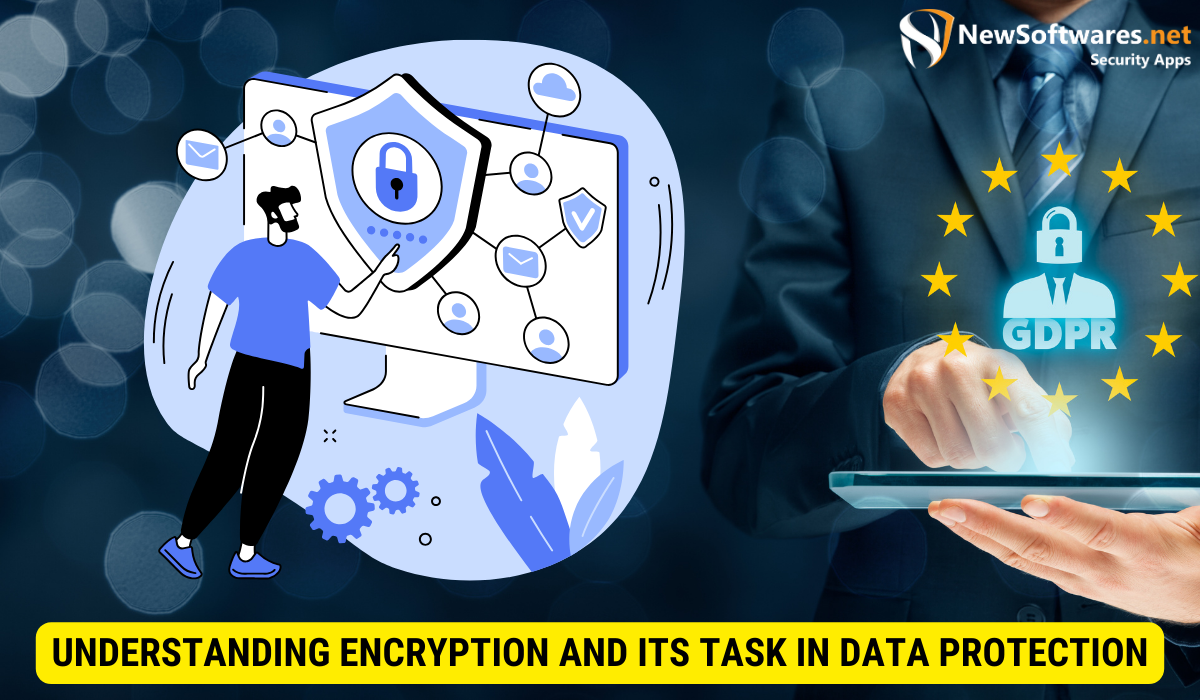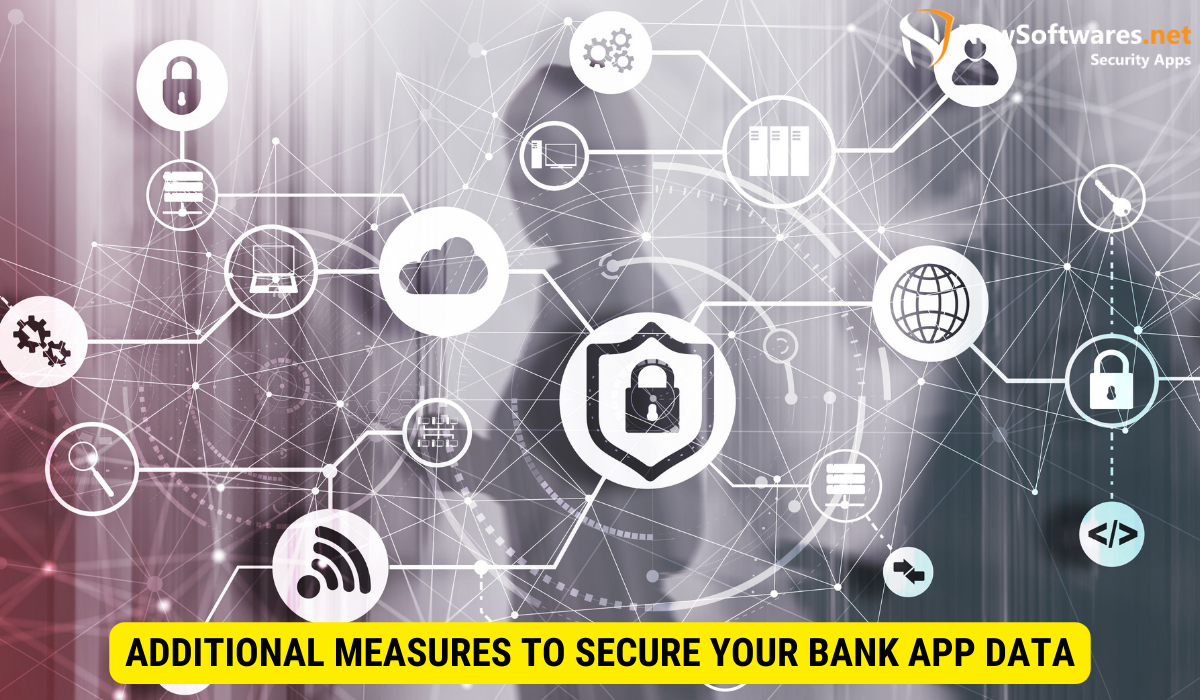Yes, an encrypted phone protects your data when using a bank app by utilizing complex algorithms and encryption keys to secure your personal and financial information from unauthorized access.
In today’s digital world, mobile banking has become increasingly popular. With just a few taps on your smartphone, you can gain access to your Bank account, transfer funds, pay bills, and even invest in stocks. However, as convenient as mobile banking may be, it also poses various security concerns. One primary concern is the protection of your personal and financial data while using a bank app. Many individuals are turning to encrypted phones as a potential solution to safeguard their sensitive information. But does an encrypted phone really protect your data when using a bank app? Let’s delve into the world of encryption to understand its role in data protection and evaluate the effectiveness of encrypted phones.
Understanding Encryption And Its Task In Data Protection

What is Encryption?
Encryption is a procedure that converts plain text form into a format that is unintelligible to unauthorized individuals. It involves the use of mathematical algorithms and a unique encryption key to scramble the data, making it unreadable. This encrypted data can only be deciphered and accessed by individuals who possess the corresponding decryption key.
How Does Encryption Work?
Encryption works based on various algorithms, including symmetric and asymmetric encryption. Symmetric encryption uses a single key for encrypting and decrypting the data, while asymmetric encryption utilizes a pair of keys—a public key for encryption and a private key for decryption.
When you access a bank app on your encrypted phone, the data you send and receive is encrypted using complex algorithms and unique encryption keys. This ensures that even if someone intercepts the information, they won’t be able to decipher it without the proper decryption key.
The Importance of Encryption in Mobile Banking
The Risks of Mobile Banking
Mobile banking offers convenience, but it also opens doors to potential risks. Hackers and cybercriminals are constantly devising new methods to exploit vulnerabilities in mobile banking apps and steal sensitive information. Once they gain access to your banking data, they can carry out unauthorized transactions, commit identity theft, or even drain your bank account.
How Encryption Enhances Mobile Banking Security
Encryption plays a important role in enhancing the security of mobile banking. It ensures that your data remains secret and protected against unauthorized access. Encryption helps in two key areas:
- Data Privacy: Encryption protects your data from being intercepted during transmission. This makes it extremely difficult for hackers to eavesdrop on your mobile banking activities and steal valuable information.
- Data Integrity: Encryption ensures that the data exchanged between your bank’s servers and your encrypted phone remains intact and unaltered. It verifies the authenticity of the information, preventing any tampering or manipulation attempts by malicious actors.
With encryption in place, even if a hacker manages to gain access to your encrypted phone, the encrypted data will be useless without the decryption key.
How Encrypted Phones Work
The Basics of Phone Encryption
Encrypted phones use a combination of hardware and software encryption to protect the data stored on the device. When you enable encryption on your phone, it scrambles all the information stored on it and makes it accessible only with the correct encryption key or password.
The Process of Encrypting a Phone
Encrypting a phone involves the following steps:
- Encryption Preparation: Before initiating the encryption process, ensure that you have sufficient battery power and a secure internet connection. Back up your data and ensure that your mobile phone is updated with the latest software patches.
- Enabling Encryption: Depending on your phone’s operating system, navigate to the security settings and select the option to enable encryption. You may be asked to enter a password or PIN, which will serve as the encryption key.
- Encryption Process: Once you confirm the encryption, your phone will begin the encryption process. This process securely scrambles all the data on your device, including apps, files, and settings.
- Encryption Completion: The encryption process may take some time, depending on the size and complexity of the data on your phone. Once completed, your phone will prompt you to enter the encryption key every time you power it on.
The Effectiveness of Encrypted Phones in Protecting Bank App Data
The Strengths of Using Encrypted Phones for Banking
Encrypted phones offer several advantages when it comes to protecting bank app data:
- Data Confidentiality: With an encrypted phone, your sensitive banking data remains confidential, even if your device falls into the wrong hands. The encryption makes sure that only authorized individuals can access and decrypt the data.
- Secure Data Storage: Encrypted phones provide an additional layer of security for the data stored on the device. In the event of loss or theft, your encrypted data remains inaccessible to unauthorized individuals.
- Protection Against Malware: Encrypted phones can help safeguard against malware attacks that attempt to intercept or manipulate your banking data. The encryption renders the stolen data useless to cybercriminals.
The Limitations of Phone Encryption in Banking Security
While encrypted phones offer robust protection, it’s important to acknowledge their limitations:
- Third-Party Security: Encrypted phones alone cannot protect against all possible security risks. The security of mobile banking also relies on the practices and measures implemented by the bank and its app developers.
- Key Management: It’s crucial to manage your encryption key effectively. If you forget or be unable to find your encryption key, you may lose access to your encrypted data permanently.
- Physical Security: While encryption protects your data in digital form, it does not safeguard your physical device. Ensure that you have appropriate measures in place to secure your phone physically.
Additional Measures to Secure Your Bank App Data

Two-Factor Authentication and Its Benefits
Two-factor authentication (2FA) adds one more layer of security to your mobile banking experience. It requires you to provide a second form of verification, such as a unique code sent to your registered mobile number, in addition to your password.
Enabling 2FA provides an additional barrier for potential attackers, as they would need to possess both your password and the second factor of authentication to gain access to your bank app data.
Regular Software Updates and Their Importance
Regularly updating your phone’s software is vital for maintaining the security of your bank app data. Updates often include crucial security patches and bug fixes that mitigate known vulnerabilities.
By keeping your phone’s software up to date, you minimize the risk of your device being compromised by attackers exploiting known security flaws.
Key Takeaways
- Data Encryption plays a vital role in shielding your personal and financial data when using a bank app on your smartphone.
- Encrypted phones use complex algorithms and unique encryption keys to scramble and secure your data.
- Encryption enhances mobile banking security by ensuring data privacy and integrity.
- Using an encrypted phone for banking offers advantages such as data confidentiality, secure data storage, and protection against malware.
- Supplementing encryption with measures like two-factor authentication and regular software updates further increases the security of your bank app data.
Frequently Asked Questions (FAQs)
Can encrypted phones protect against all types of mobile banking threats?
While encrypted phones provide strong protection, they cannot eliminate all potential security risks. They primarily safeguard data confidentiality and integrity. It’s important to put into practice additional security measures and adhere to safe mobile banking practices to minimize the risk of other threats such as phishing attacks, social engineering, or untrusted app downloads.
What happens if I not remember the encryption key for my phone?
If you forget the encryption key for your phone, the encrypted data becomes inaccessible. It is crucial to store your encryption key securely, preferably in a password manager or a physical safe. Losing the encryption key may result in permanent data loss, as there is no way to recover the encrypted data without it.
Are encrypted phones immune to malware attacks?
While encrypted phones provide an extra layer of protection against malware attacks, they are not entirely immune. It’s important to exercise care when downloading apps and opening email attachments. Employing reputable antivirus software and regularly updating your phone’s software are also essential practices for mitigating the risk of malware infections.
Can I use an encrypted phone with any bank app?
Encrypted phones can be used with any bank app, as long as the app is compatible with your phone’s operating system. Encrypted phones provide an additional layer of security for your data, regardless of the specific bank app you use.
Are encrypted phones suitable for non-tech-savvy individuals?
While encryption provides enhanced data protection, using encrypted phones does require basic technical knowledge. Understanding how encryption works, managing encryption keys, and following encryption procedures may be challenging for individuals with limited technical expertise. However, as encryption becomes more prevalent, user-friendly interfaces and streamlined processes are being developed to cater to a wider user base.
Conclusion
Does an encrypted phone protect data when using a bank app? The answer is a resounding yes. Encryption plays a essential role in securing your personal and financial data on mobile banking apps. Encrypted phones provide an added layer of protection, ensuring that your data remains secret and inaccessible to unauthorized individuals. However, it’s important to remember that encryption should not be the sole security measure in your mobile banking arsenal. Employing multiple security layers such as two-factor authentication and regular software updates, along with practicing safe mobile banking habits, collectively contribute to a robust and secure banking experience on your encrypted phone.
